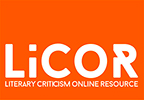‘Poetry,’ declared the Welsh poet Dylan Thomas, ‘is what in a poem makes you laugh, cry, prickle, be silent, makes your toenails twinkle, makes you want to do this or that or nothing, makes you know that you are alone in the unknown world, that your bliss and suffering is forever shared and forever all your own.’ The American poet Emily Dickinson believed something similar. ‘If I feel physically as if the top of my head were taken off,’ she told a friend, ‘I know that is poetry.’
If only poetry always had as powerful an effect on us as this! For many of us, though, our first reaction on being presented with a poem and told to interpret it could hardly be more different. Unused as most of us are to the conventions that govern the shape and workings of poetry, our first response is much more likely to be a weary groan, followed by a lethargic stirring of the embers of our indifference, until we have eventually worked ourselves up into such a lava that we can do nothing more than cannon forth in utter annoyance and frustration a volley of questions that in their edited form look something like this:
Why on earth have the words been set out on the page in this way? Why do the lines break off before the end of the page has been reached or the sentence has been completed? Why are some lines of a different length than others? Why do many – or all – of the lines rhyme (or not)? Why is there (or is there not) a regular metre? Why, in short, hasn’t the author done what any normal person would do and said what they have to say in regular, comprehensible prose?
Born as they may have been out of a sense of outrage and incomprehension, these are actually excellent questions. Surprising as it might sound, they provide the ideal starting point for analysing any poem whatsoever. If you take these questions seriously and set about trying to find plausible answers to them, you will already have begun the real work of literary criticism. What is more, if you persevere, there is a good chance they will help you come to appreciate and enjoy poetry all the more as well. Indeed, the more familiar you become with the distinctive techniques poetry employs as you read more poems, the more open you will become to having the kind of experience of poetry that Dylan Thomas and Emily Dickinson (along with many others) describe.
